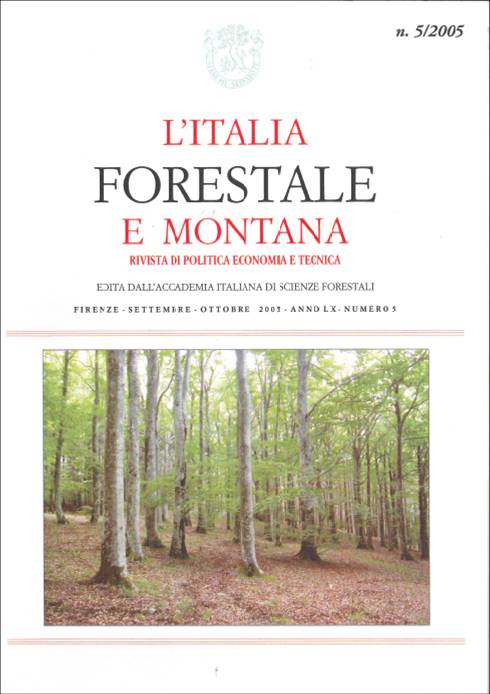Articoli Scientifici
Pubblicato 2008-10-24
Parole chiave
- cooperazione internazionale,
- cambiamenti climatici,
- foreste,
- transetto latitudinale.
Copyright (c) 2008 L'Italia Forestale e Montana

Questo lavoro è fornito con la licenza Creative Commons Attribuzione - Non commerciale 4.0 Internazionale.
Abstract
L’Università degli Studi del Molise, nell’ambito del Progetto di Internazionalizzazione del MIUR Ciclo del Carbonio ed altri gas serra in ecosistemi forestali, naturali ed artificiali dell’America Latina: analisi preliminare, studio di fattibilità e comparazione con ecosistemi italiani, ha effettuato una spedizione in Cile, nello scorso febbraio 2008, per intensificare la cooperazione scientifica con partner accademici cileni ed argentini, realizzando campionamenti in ambito forestale lungo un transetto latitudinale nel territorio cileno.L’esplorazione ha avuto inizio dall’estremo sud del Cile, in Terra del Fuoco, presso il Parco Etnobotanico di Omora. In tale realtà sono stati individuati popolamenti forestali vetusti a prevalenza di Nothofagus betuloides (coigüe), dove sono stati effettuati campionamenti dendro-cronologici su piante vive e sul legno morto in stadi decompositivi differenti, con l’obiettivo di valutare la progressione temporale della decomposizione.
Successivamente, la spedizione ha fatto tappa presso il Parco Nazionale di Torres del Paine, dove sono stati effettuati carotaggi dendrocronologici, continuando poi le attività di campionamento verso nord, nell’ambito di tre aree vulcaniche disposte a ridosso della Cordigliera delle Ande:Villarica, Lonquimay e Chillan. Tali campionamenti permetteranno di studiare gli effetti delle eruzioni sui tassi d’accrescimento della vegetazione arborea e sull’efficienza fotosintetica in condizioni atmosferiche non ordinarie, ipotizzando forti cambiamenti climatici su scala locale relativi agli anni successivi alle eruzioni.
Le analisi in corso hanno già evidenziato una riduzione degli accrescimenti arborei negli anni successivi alle eruzioni, probabilmente a causa della riduzione della temperatura dell’aria e dell’incremento dell’umidità atmosferica indotto dai vapori e dalle ceneri emesse. La spedizione effettuata ha evidenziato l’importanza della cooperazione internazionale, che può consentire il confronto con aree forestali remote, talvolta caratterizzate da condizioni di maggiore naturalità rispetto a quelle europee e mediterranee.

